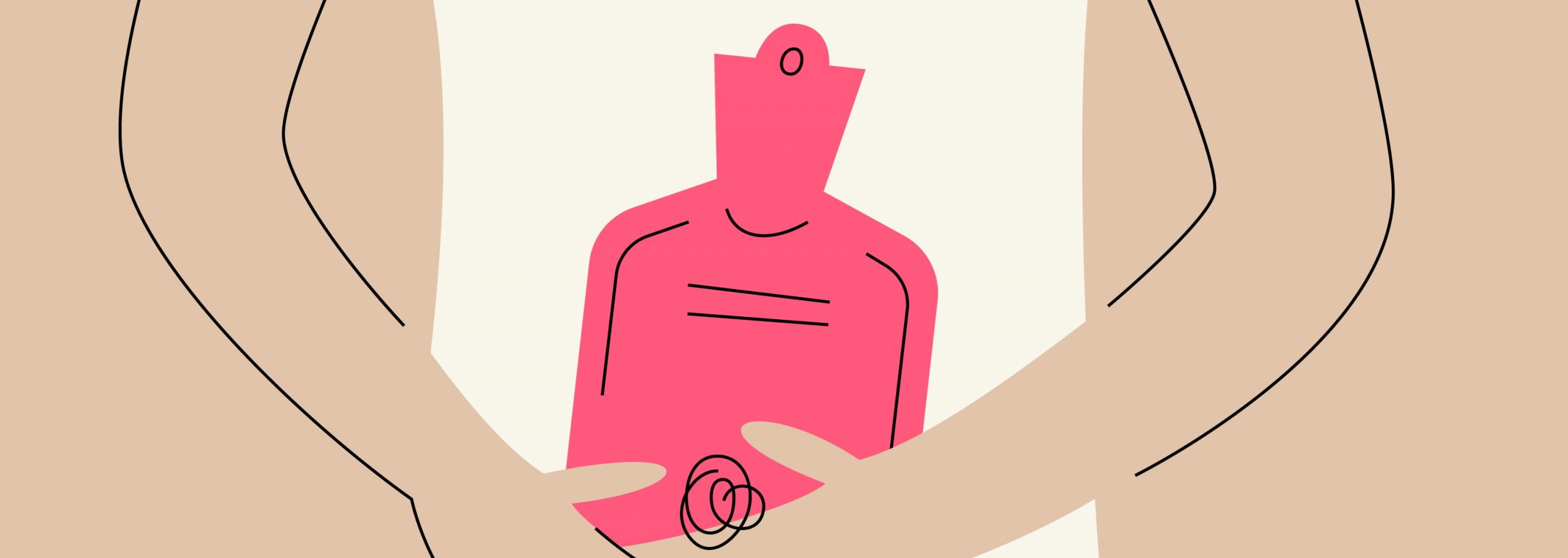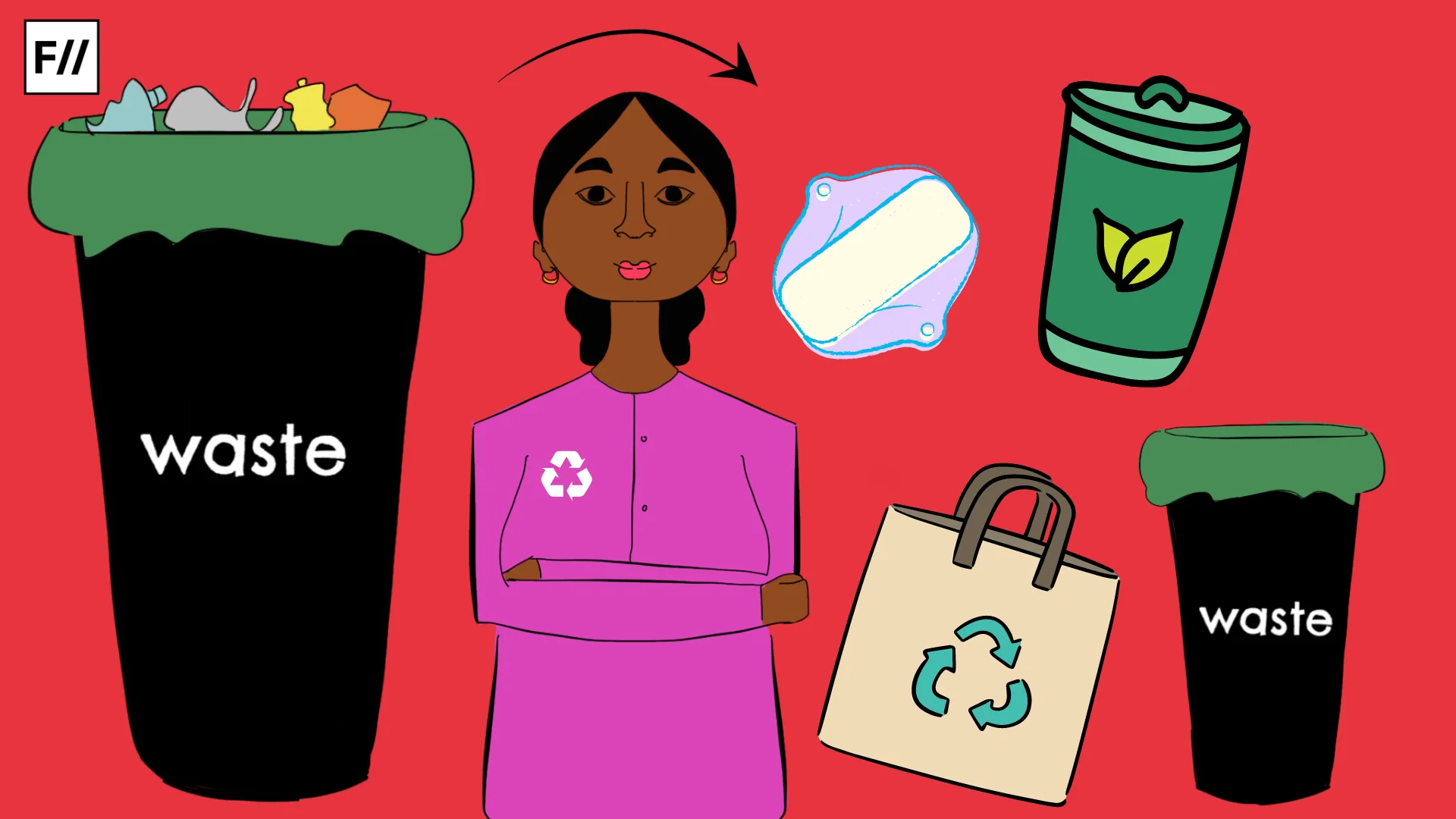Attiring herself in a perfectly ironed shirt, combing her hair into a clean bun, putting on a pair of neatly polished leather moccasins and finally wearing a smile which was reflecting her aplomb, she was ready to go to work. Just as she was about to leave, there was a knock, not at her door but in her body and immediately she knew that it was again the time for the crimson waves to arrive. Was it because she stepped out with the wrong foot or because a little kitten crossed her way yesterday, or because she sneezed as soon as she got up in the morning?
An infinite number of illogical myths associated, devoid of any rationale, with this biological process, start crossing her mind. She was not a woman who believed in stereotypes but the society has shaped her in a way that even education was not able to liberate her from this irrational narrative about this big-time taboo. She was not hit by periods but by society.
Stepping back into the house, removing her moccasins, throwing herself on the bed transforming her perfectly ironed shirt a wrinkled one, she started calling at her office reception, to ask for a three-day leave. NO! she was not a woman who believed in sitting in the house due to the fear of stains or “increased vulnerability to black magic”, but because of her crumbling body due to the pain associated with the advent of these crimson waves. Periods are one of the biggest taboos, because of their process which involves sexual organs of an already oppressed section of the society.
When a woman who is experiencing pain to the extent of having a heart attack is said to be exaggerating as being oversensitive based on sexist stereotypes, no wonder why medical research, in the domain of dysmenorrhea, took so long.
As a consequence of this tag being attached to menstruation people are only partially aware of the process and are ignorant of what happens as a result of it. Periods are not just restrained to blood flowing out of a woman’s vagina leading to weakness and mood swings (as many people perceive it) rather, one of the most important parts associated with them is period cramps. Yes, it is true that not all women experience these but those who do are the ones who can best elaborate how one day feels like a decade, better than a person who has recently experienced heartbreak.
While scrolling through her call logs, she suddenly stopped and thought of the outstanding payments for the month and realized that she cannot afford to forgo her salary for three days. The realization was enough to make her spring off the bed, gulp down a painkiller and rush to catch the metro. She knew swallowing a pill would be futile as always but she hoped for a placebo effect. Panting crazy, standing at the entrance, she took a deep breath and entered the arena. Her back was stooping, her legs were trembling as she walked upstairs and her face reflected sweltering weather even in an air-conditioned workplace.
Also read: Why Do We Need The Menstrual Leave Policy In India?
When these products which are being used externally by a woman during menstruation have not received enough space in medical science, maybe it’s a far-fetched thought that there would even be a whisper of Dysmenorrhea.
As she was about to enter her cubicle, her eyes denied to listen to the signals, sent by her brain, to keep them open; her trembling legs resented to bear the weight of her shuddering body anymore, and she fell on the ground with a thud in the lap of unconsciousness. There have been various attempts to detach the tag of taboo from menstruation by pulling it out in the public sphere for discussion and to some extent, these initiatives are worthy of being termed as successful but this success has not yet permeated into the medical world.
Although it is said that medical science has advanced to great extents but the only stains of medical intervention in this arena are the study of sanitary napkins and the menace created by these in waste management. What about the menace created by these products or this process inside a woman’s body? There is no answer but a period! When these products which are being used externally by a woman during menstruation have not received enough space in medical science, maybe it’s a far-fetched thought that there would even be a whisper of Dysmenorrhea. Except for this recognized medical term for menstrual cramps, on all other questions regarding this, there is again a period.
I can easily imagine a few of the readers perceiving me to be a girl who is a victim of these cramps and is writing in frustration to cover up her fragility. But thankfully there has been a study conducted at the University College London which proves that there is much more substance in this write up than just vociferation. The study was about Dysmenorrhea in which Professor John Guillebaud revealed that menstrual cramps can be as bad as having a heart attack. Yes, you read it right and no, this is no joke, neither is a stunt to proliferate ‘feminism’ but crystal-clear truth based on medical research conducted by prominent scholars. When a woman who is experiencing pain to the extent of having a heart attack is said to be exaggerating as being oversensitive based on sexist stereotypes, no wonder why medical research, in the domain of dysmenorrhea, took so long.
It is the high time since the medical world made this issue a part of its world and commenced intensive research on the same. The burden does not solely lie on the medical field but also on the entire professional fraternity to make every workplace a conducive one for every woman. In furtherance of this aim, menstrual cramps should be recognized as a medical condition legible enough to be able to attract paid leaves at every workplace.
Also read: I Am Done Apologising For Suffering From Dysmenorrhea
This suggestion should not be seen coming from a mindset that suggests that menstruating women should sit at home but from a quotidian narrative which suggests that if you are in pain, worry about your body first rather than money. The reason being (traveling back to the initial point being made), periods are not just about blood flow but also unmanageable pain.
Nupur Agrawal is an aspiring lawyer, currently studying in her second year at National Law University, Delhi. She is an avid reader who enjoys spending her leisure time writing. You can find her on Facebook and Instagram.
Featured Image Source: Flo




